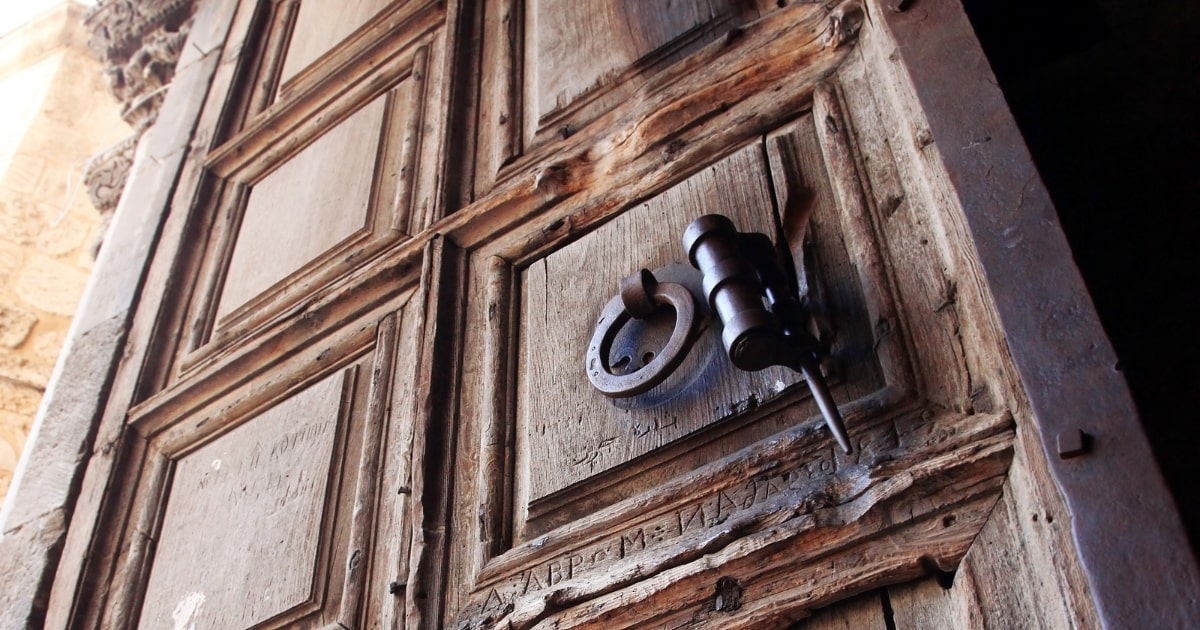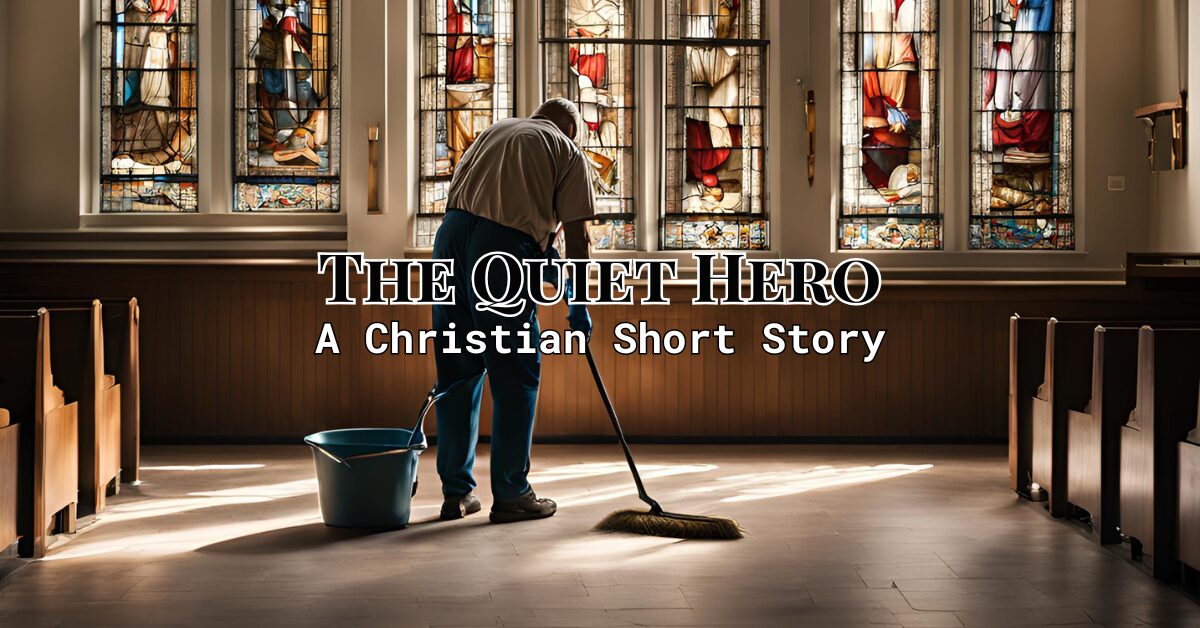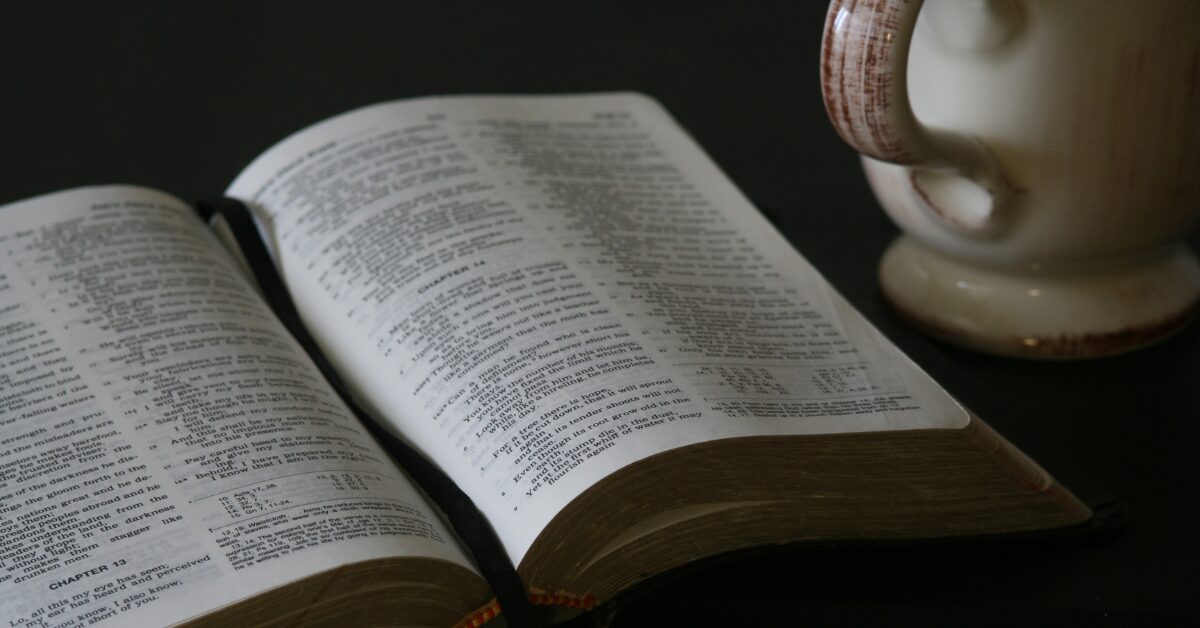In the vast landscape of Jesus’ teachings, the Parable of the Doorkeeper, as presented in Mark 13:32-37, stands out as a profound call to vigilance and readiness. Within this succinct yet powerful narrative, Jesus encapsulates a timeless message about the unpredictability of His return and the paramount importance of being prepared at all times. This parable, set against the backdrop of Jesus’ eschatological discourse, serves as a pivotal reminder to His followers to live in a state of constant watchfulness, akin to a doorkeeper who must be ever alert to the master’s return.
The Doorkeeper parable invites us into a deeper reflection on our spiritual preparedness and the daily attentiveness we owe to our faith and duties. It challenges us to consider how we, as modern disciples, can cultivate a lifestyle that mirrors the vigilance and dedication of a doorkeeper waiting for their master. Through the imagery of a servant tasked with keeping watch, Jesus communicates the critical nature of our spiritual alertness—not out of fear, but out of a profound love and anticipation for the Lord’s coming.
As we delve into the Parable of the Doorkeeper, we are called to explore its implications for our personal and communal lives. This blog post aims to unpack the layers of meaning within the parable, offering insights into how its teachings can be practically implemented in our daily walk with Christ. Join us as we discover how to live out the call to watchfulness, ensuring that our lamps are always burning brightly, ready to greet the Master the moment He arrives. Let this exploration inspire us to embrace the role of the doorkeeper, vigilant and prepared, as we await the glorious return of our Lord.
Also Read: Parable of Jesus: The Ten Virgins
Parable of Jesus Christ: The Doorkeeper
The Doorkeeper Parable, Mark chapter 13, verses 32-37 (WEB):
“32 But of that day or that hour no one knows, not even the angels in heaven, nor the Son, but only the Father. 33 Watch, keep alert, and pray; for you don’t know when the time is.
34 It is like a man, traveling to another country, having left his house, and given authority to his servants, and to each one his work, and also commanded the doorkeeper to keep watch. 35 Watch therefore, for you don’t know when the master of the house is coming, whether in the evening, or at midnight, or when the rooster crows, or in the morning; 36 lest coming suddenly he might find you sleeping. 37 What I tell you, I tell all: Watch.”
The Doorkeeper Parable emphasizes the unpredictability of the timing of Christ’s return and underscores the importance of vigilance, alertness, and prayerfulness in anticipation of this event.
Also Read: The 45 Parables of Jesus
Interpretation of The Doorkeeper Parable
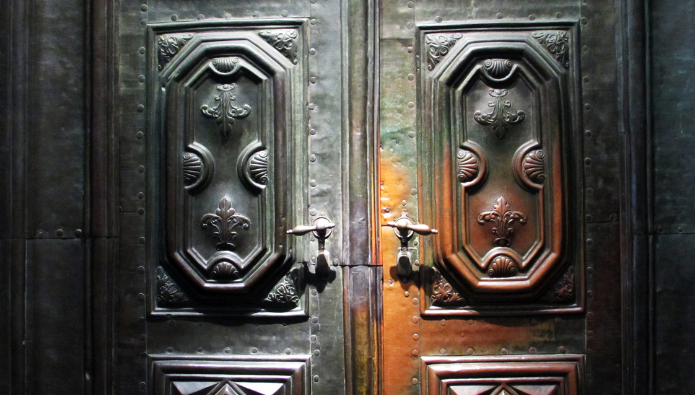
The Doorkeeper Parable, found in Mark 13:32-37, is a compelling narrative embedded within Jesus’ teachings on the end times. It serves as a metaphorical reminder of the importance of vigilance and preparedness for the return of Christ, whose timing is unknown. This parable, while concise, is rich in symbolic meaning and practical implications for believers. Let’s delve into its interpretation.
The Unpredictability of Christ's Return
No One Knows the Hour: The parable begins with a stark assertion that the exact time of the Lord’s return is known only to the Father. This unpredictability is not a cause for anxiety but a call to constant readiness. The Doorkeeper Parable emphasizes that spiritual vigilance should not be dictated by calculated predictions but should be a perpetual state of the believer’s heart and mind.
The Role of the Doorkeeper
Vigilance and Responsibility: The figure of the doorkeeper symbolizes the role of believers as guardians of their faith and as individuals tasked with the continuous watch for Christ’s return. This role entails an active engagement with one’s spiritual duties, highlighting the personal responsibility each believer holds in maintaining their faith and encouraging it in others.
The Call to Watchfulness
A Universal Message: Jesus concludes the parable with a universal call to watchfulness, extending the instruction beyond the immediate circle of disciples to all followers across time. “What I tell you, I tell everyone: Watch!” This command underscores the inclusivity of the message and its relevance to every believer, irrespective of their generation or circumstance.
Practical Implications for Believers
Beyond Literal Watching: The command to watch does not imply a passive, idle waiting but an active, engaged anticipation. Being like the doorkeeper means living a life that reflects the values and teachings of Jesus, being morally and spiritually prepared for His coming at any moment.
Preparedness Through Faith and Action: The Doorkeeper Parable calls believers to cultivate a deep, personal relationship with God through prayer, scripture study, and living out the gospel. This preparedness involves both a heart oriented towards God and actions that reflect His love and righteousness.
The Doorkeeper Parable is a profound reminder of the importance of vigilance in the Christian life. It challenges us to consider our readiness for Christ’s return, not through fear or speculation about the end times, but through a steadfast commitment to faith and action. This parable encourages us to adopt the posture of the doorkeeper, always alert, always prepared, and always living in a manner worthy of the Lord we eagerly await. Through this understanding, we can better appreciate the depth of Jesus’ call to watchfulness and the ways it should shape our lives as His followers.
Practical Application of The Doorkeeper Parable in Our Daily Lives
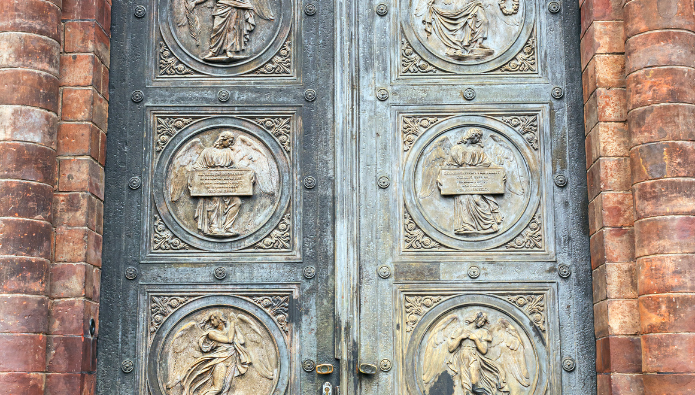
How can you apply The Doorkeeper Parable in practically in your daily life? Let’s find out.
The Doorkeeper Parable, as depicted in Mark 13:32-37, serves as a potent metaphor for spiritual readiness and the constant vigilance required of believers in anticipation of Christ’s return. This narrative, while simple, carries deep implications for how we live our faith daily. Here’s how we can integrate the lessons of The Doorkeeper Parable into our everyday lives.
Live in a State of Readiness
Spiritual Vigilance: The core message of The Doorkeeper Parable emphasizes the need for spiritual vigilance. This means cultivating a daily practice of prayer, meditation on the Scriptures, and self-examination. Just as a doorkeeper remains alert, we too should keep our spiritual senses sharpened, ready to respond to God’s call at any moment.
Embrace Ongoing Faith Development: Constant readiness also involves an ongoing commitment to grow in faith. Engaging in study, fellowship, and spiritual disciplines helps to deepen our understanding and strengthen our relationship with God. This continuous growth ensures that we are not caught unprepared, much like the vigilant doorkeeper.
Serve Faithfully in Our Assigned Roles
Faithfulness in Duties: The Doorkeeper Parable calls each servant to fulfill their assigned tasks. Similarly, we are encouraged to serve faithfully in the roles God has entrusted to us, whether in our families, churches, workplaces, or communities. This faithfulness in small and big responsibilities reflects our readiness and anticipation for the Lord’s coming.
Witnessing Through Service: Just as the doorkeeper’s role is pivotal for the household’s security, our service can be a witness to the grace and love of Christ. By serving others selflessly, we embody the gospel’s message, preparing ourselves and those around us for the ultimate reunion with Christ.
Cultivate a Culture of Watchfulness
Encouraging Mutual Watchfulness: The Doorkeeper Parable is not just about individual readiness but also about fostering a community that encourages vigilance. By supporting one another in faith, sharing insights from Scripture, and praying together, we can cultivate a culture of watchfulness that strengthens the entire body of Christ.
Being Alert to God’s Movements: Vigilance also involves being attentive to how God is moving in the world and in our lives. This means being open to the Holy Spirit’s guidance, recognizing opportunities to advance God’s kingdom, and being prepared to act on God’s promptings.
Cultivate a Culture of Watchfulness
Embracing Uncertainty with Trust: The unexpected return of the master in The Doorkeeper Parable teaches us to embrace life’s uncertainties with trust in God. While we do not know the day or hour of Christ’s return, we can live each day with confidence in God’s sovereignty and goodness, trusting that our vigilance is not in vain.
Preparation Over Prediction: Rather than focusing on predicting the exact timing of spiritual events, The Doorkeeper Parable redirects our attention to preparation. This approach shifts our focus from the when to the how of our readiness, encouraging us to live out our faith actively and intentionally.
The Doorkeeper Parable challenges us to live with a sense of purpose and preparedness, echoing the call to be spiritually vigilant and faithfully serve in our God-given roles. By applying the lessons of this parable, we learn to navigate life’s uncertainties with faith, serve with dedication, and cultivate a watchful spirit, all while anticipating the joyous return of our Lord. Let this parable inspire us to embrace our roles as doorkeepers in God’s kingdom, vigilant and ready for the moment we hear the Master’s call.
Conclusion
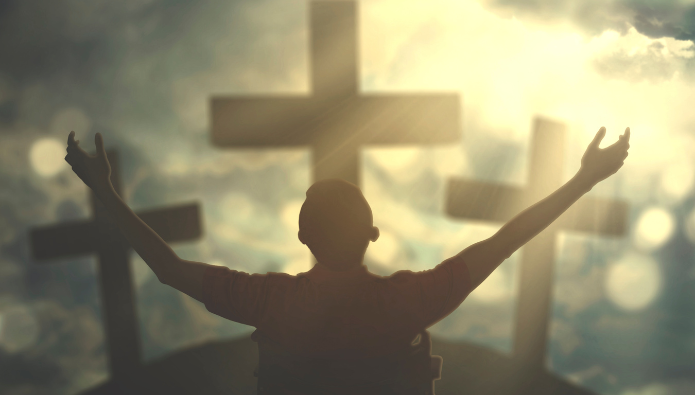
In wrapping up our exploration of The Doorkeeper Parable, we are reminded of the profound simplicity and depth this teaching brings to our spiritual journey. It is a clarion call to vigilance, preparedness, and faithful service, compelling us to live each day with anticipation of Christ’s return. This parable does not merely instruct us to wait; it invites us to engage actively in the work of the Kingdom, to cultivate our spiritual lives, and to serve with unwavering dedication, mirroring the doorkeeper’s watchfulness.
The Doorkeeper Parable serves as a powerful metaphor for the Christian life, emphasizing that readiness for the Lord’s coming is not a passive state but an active pursuit of holiness, love, and service. It challenges us to examine our lives, asking whether we are living as vigilant doorkeepers, attentive to our duties and to the presence of God in our midst. This narrative encourages us not to be caught sleeping, unprepared for the moment of Christ’s return, but to be found doing the work He has entrusted to us, with our lamps full and our hearts ready.
As we conclude this reflection on The Doorkeeper Parable, let it inspire us to live with purpose, to foster a culture of watchfulness within our communities, and to embrace each day as an opportunity to demonstrate our readiness for the Master’s return. May we carry forward the lessons of this parable into our daily lives, ensuring that when the Bridegroom arrives, He will find us alert, prepared, and joyfully awaiting His call.
Let The Doorkeeper Parable continually remind us of the importance of being vigilant servants, embodying the hope and expectancy of those who eagerly await the glorious coming of our Lord and Savior.
Read the Next: Parable of Jesus: The Talents

